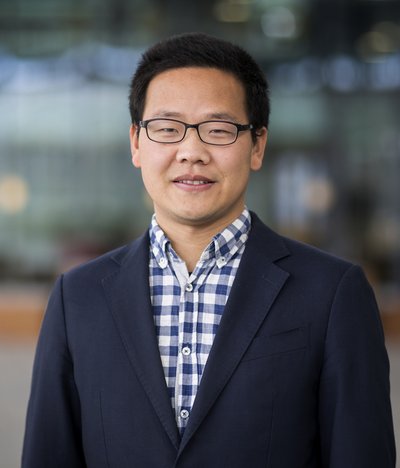Feixiong Liao
Department / Institute
Group

RESEARCH PROFILE
Feixiong Liao is an assistant professor (tenured) at the Urban Planning and Transportation Group of Eindhoven University of Technology (TU/e). His fields of expertise and interest include urban planning, transport studies, mobility behavior analysis, demand management, and social well-being. Feixiong’s current research is focused on the development of a large-scale model system of urban transportation planning. He is an expert on the frontier of multi-state supernetwork modeling for interdependent decision problems.
He is currently working on the following research and innovation topics:
(1) Network modeling in mobility demand and supply analyses;
(2) Accessibility measurement in urban contexts;
(3) Behavior analysis with a special focus on bounded rationality;
(4) Service innovation for addressing mobility issues;
(5) Sustainability (nexus of mobility, energy, social aspects, etc.).
He is also interested in collaborating on a variety of topics including AI applications, climate-neutral mobility, integrated land-use transport modeling, experimental designs, microsimulations, panel data analysis, etc. Feel free to contact him if you have something exciting in mind.
He believes in doing services as a core part of the profession, although time is compressed (sacrificed) for doing research. He serves on the editorial board of a few ISI-indexed scientific journals, such as Heliyon, Frontiers in Engineering Management, Communications in Transportation Research (ESCI), and Societal Impacts, and regularly reviews manuscripts for 70+ international scientific journals. Currently, he is the Education Coordinator of the USRE Unit (including three research groups).
Interdependent decision-making is essential, although humans and policies are bounded.
ACADEMIC BACKGROUND
He received his doctorate degree (cum laude, less than 5% nationwide) from TU/e in Nov. 2013. During his Ph.D. study, he was the principal researcher (funded by NWO) in a large consortium to examine how accessibility in large metropolitan areas can be improved by designing land-use transport synchronization strategies. Alongside, he made notable contributions in extending the state-of-the-art of multi-state supernetwork approach.
After completing his Ph.D. study, he initiated international (Dutch-Sino) joint research (funded by NWO) and became a post-doc researcher at the same group. Through the collaboration, his post-doc research attempted to solve a vital shortcoming of the existing travel demand forecasting systems by coupling activity-based modeling and dynamic traffic assignment in the multi-state supernetworks. He also coordinated a large-scale data collection and analysis of multi-modal travel behavior in Europe and China.
He became an assistant professor at the same group in Feb. 2016 and started teaching courses "Smart Mobility Design" and "Mobility and Logistics" and supervising bachelor and master graduation projects. Since 2017, he has been co-promotor and daily supervisor of 5-7 Ph.D. students and post-docs (annually). He works on multiple research lines centered at the modeling of complex activity-travel behavior in multi-state supernetworks.
Currently, he is the PI of an international joint research program (JPI Urban Europe, 2019-2024, funded by NWO) on the valuation and administration of accessibility to housing and transportation. He also holds a five-year education innovation fund for challenge-based learning and research in the domain of smart mobility. Being an active researcher, he acts as an ad-hoc reviewer for many leading scientific journals, peer-reviewed conferences, and funding agencies. He has held visiting scholarships at UMASS (Massachusetts), ETH (Zurich), KIT (Karlsruhe), and Beihang (Beijing). He is an inductee of the top 2% of scientists worldwide in 2023 according to Elsevier.
Key Publications
-
F. Liao,Q. Tian,T.A. Arentze,H.-J. Huang
Travel preferences of multimodal transport systems in emerging markets
Transportation Research. Part A: Policy and Practice (2020) -
F. Liao,T.A. Arentze
Incorporating space-time constraints and activity-travel time profiles in a multi-state supernetwork approach to individual activity-travel scheduling
Transportation Research. Part B: Methodological (2013) -
F. Liao
Modeling duration choice in space–time multi-state supernetworks for individual activity-travel scheduling
Transportation Research. Part C: Emerging Technologies (2016) -
P. Labee,Soora Rasouli,Feixiong Liao
The implications of Mobility as a Service for urban emissions
Transportation Research. Part D: Transport and Environment (2022) -
Dong Wang,Feixiong Liao,Ziyou Gao,Soora Rasouli,Hai Jun Huang
Tolerance-based column generation for boundedly rational dynamic activity-travel assignment in large-scale networks
Transportation Research. Part E: Logistics and Transportation Review (2020)
Current Educational Activities
Ancillary Activities
No ancillary activities